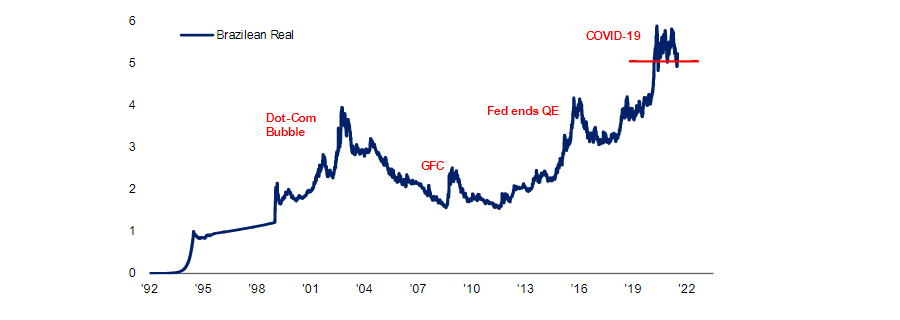Understanding The Value Of Middle Managers: Benefits For Companies And Their Teams

Table of Contents
Bridging the Gap Between Executive Leadership and Frontline Employees
Middle managers act as a crucial bridge, connecting executive leadership's strategic vision with the daily realities of frontline employees. They translate complex strategic goals into actionable tasks, ensuring everyone understands their role in achieving overall company objectives. This two-way communication flow is vital for organizational success.
- Effective communication and information dissemination: Middle managers facilitate the smooth flow of information, ensuring transparency and minimizing misunderstandings. They clarify directives, answer questions, and keep teams informed of relevant updates.
- Improved employee understanding of company objectives: By breaking down complex strategies into manageable tasks, middle managers empower employees to feel ownership and contribute meaningfully to the bigger picture. This improves engagement and alignment.
- Faster response to challenges and opportunities: Their proximity to daily operations allows middle managers to quickly identify and address emerging issues, enabling proactive problem-solving and rapid response to market changes. This agility is a significant competitive advantage.
- Reduced information silos and improved collaboration: Effective middle managers encourage cross-departmental communication and collaboration, breaking down barriers between teams and fostering a more unified approach to problem-solving. This enhances efficiency and innovation.
Fostering Team Collaboration and Mentorship
Middle managers are instrumental in building high-performing teams. Their role transcends simple task delegation; they actively foster collaboration, provide mentorship, and resolve conflicts, contributing significantly to a positive and productive work environment. Investing in their leadership skills is an investment in your team's success.
- Team building activities and initiatives: Middle managers often lead team-building exercises, fostering camaraderie and improving interpersonal dynamics. This strengthens team cohesion and improves overall productivity.
- Mentoring and coaching individual team members: They offer guidance, support, and professional development opportunities, nurturing individual growth and empowering team members to reach their full potential.
- Conflict resolution and mediation: Middle managers skillfully navigate disagreements, mediating conflicts and finding solutions that satisfy all parties. This maintains a harmonious work environment and prevents disruptions to productivity.
- Performance management and employee development: They play a crucial role in setting clear expectations, providing regular feedback, and conducting performance reviews. This contributes to employee growth and ensures performance remains aligned with company goals.
Driving Operational Efficiency and Productivity
Middle managers are responsible for overseeing day-to-day operations, ensuring tasks are completed efficiently and resources are utilized effectively. This translates to increased productivity, reduced waste, and significant cost savings for the organization. Their focus on optimizing processes is key to maximizing ROI.
- Resource allocation and project management: Middle managers expertly allocate resources, manage project timelines, and ensure tasks are completed within budget and on schedule. This improves project success rates and minimizes delays.
- Process optimization and improvement: They identify bottlenecks and inefficiencies in existing workflows, proposing and implementing improvements to streamline processes and enhance productivity. Lean methodologies are frequently used here.
- Monitoring performance metrics and identifying areas for improvement: Through regular monitoring and analysis of key performance indicators (KPIs), middle managers identify areas needing improvement and implement corrective actions. Data-driven decision-making is essential to this role.
- Implementing best practices and streamlining workflows: They stay abreast of industry best practices and leverage them to improve efficiency and productivity within their teams. This constant drive for improvement is crucial for maintaining a competitive edge.
The Role of Middle Managers in Innovation and Adaptability
Middle managers are often on the front lines, directly observing daily operations and interacting with teams. This provides a unique perspective that allows them to quickly identify emerging challenges and opportunities. Their ability to adapt and foster innovation is essential for organizational growth.
- Identifying areas for innovation and improvement: Their close proximity to daily processes allows them to spot inefficiencies and opportunities for innovation that might be missed by upper management.
- Implementing new technologies and processes: They play a vital role in introducing and integrating new technologies and processes into daily workflows, ensuring seamless transitions and maximizing the benefits of innovation.
- Adapting to changing market conditions: Their ability to quickly respond to market shifts and adapt strategies is crucial in maintaining a competitive advantage.
- Promoting a culture of continuous improvement: Middle managers foster an environment of continuous improvement by encouraging open communication, feedback, and a willingness to embrace change.
Investing in Middle Management: A Key to Long-Term Success
A strong middle management team is a valuable investment, yielding significant returns in terms of increased employee engagement, improved productivity, and enhanced overall company performance. Investing in their training and development is crucial for achieving sustained organizational success.
- Improved employee retention rates: Supportive and effective middle managers contribute significantly to employee satisfaction and retention, reducing costly turnover.
- Higher levels of employee satisfaction: A positive and supportive middle management team fosters a more engaged and satisfied workforce.
- Increased profitability and return on investment: Improvements in efficiency, productivity, and employee retention directly translate into increased profitability and a positive return on investment.
- Enhanced company reputation and brand image: A strong, well-managed organization often attracts and retains top talent, enhancing its reputation and brand image.
Conclusion
This article has highlighted the crucial role of middle managers in fostering a thriving workplace. Far from being a layer of unnecessary bureaucracy, effective middle managers are essential for bridging communication gaps, driving operational efficiency, and fostering innovation. Investing in the development and support of your middle management team is investing in the long-term success of your company. Don't underestimate the value of your middle managers – they are a key component of a high-performing organization. Learn how to optimize your middle management strategy for peak performance!

Featured Posts
-
 Chronology Of Karen Reads Legal Battles
Apr 26, 2025
Chronology Of Karen Reads Legal Battles
Apr 26, 2025 -
 Bof As View Why Investors Should Remain Confident Despite High Stock Market Valuations
Apr 26, 2025
Bof As View Why Investors Should Remain Confident Despite High Stock Market Valuations
Apr 26, 2025 -
 Following Nintendo Contact The End Of Ryujinx Switch Emulator Development
Apr 26, 2025
Following Nintendo Contact The End Of Ryujinx Switch Emulator Development
Apr 26, 2025 -
 Analysis Of Trumps Comments On Banning Congressional Stock Trades In Time Magazine
Apr 26, 2025
Analysis Of Trumps Comments On Banning Congressional Stock Trades In Time Magazine
Apr 26, 2025 -
 Game Stop Preorder How I Got My Nintendo Switch 2
Apr 26, 2025
Game Stop Preorder How I Got My Nintendo Switch 2
Apr 26, 2025
